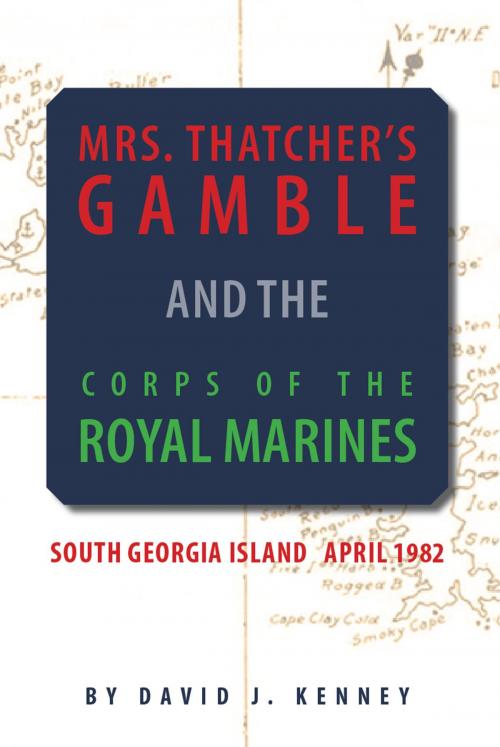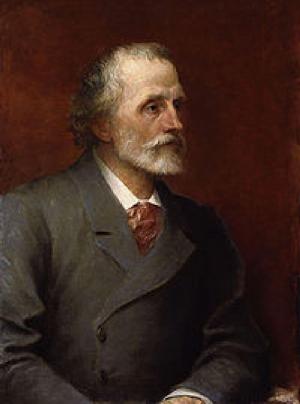| Author: | David J. Kenney | ISBN: | 9780966071740 |
| Publisher: | David J. Kenney | Publication: | August 1, 2013 |
| Imprint: | Smashwords Edition | Language: | English |
| Author: | David J. Kenney |
| ISBN: | 9780966071740 |
| Publisher: | David J. Kenney |
| Publication: | August 1, 2013 |
| Imprint: | Smashwords Edition |
| Language: | English |
This narrative describes Thatcher's rise from the depths of her Priministership to a place in modern history. Her help came principally from The Corps of The Royal Marines. Margaret Thatcher almost fell in April of 1982. Perhaps that is why the events around South Georgia Island in the spring of that year have been buried and exhumed so often. Professor Lawrence Freedman has written an excellent official history of the entire Falklands War, Nick Vaux’s book is the best on the combat, and Robert Headland remains the undisputed master of all things South Georgian. The white paper written at Thatcher’s request after the war, however, is a model of smarmy expiation. No help there! Moreover, few egregious lessons spring out of the decayed viscera of a battle that turned out a dud. The ensuing years have fetched up precious few bits of tantalizing gossip. A few sullen cabinet ministers here, some misplaced equipment there made up the rocks on Thatcher’s path. The blood that might have flowed and the political earthquakes that might have rent alliances and divided parties did not happen. Finally, I concluded that the most puissant character in the drama was not a human adversary but that malign and hostile chunk of ice and snow called South Georgia Island. But there is drama here, of misguided military adventures that could have brought Thatcher down and of how the sailors, pilots, and junior infantrymen who executed the missions they had been sent to complete managed to overcome the paralytic lethargy of a critical few and so to save the campaign. This tidy affair birthed other larger events that held or broke a few taller dams of history. In the end, the Argentinian Junta fell, and the world saw its vulgar brutality. Thatcher rescued her future by the thinnest strands of fate to become a major figure in European, if not global, history. This author stands by the notion that broad events cannot occur without a diverse cast of supporting players well lacquered with good luck or ill fortune. Buffoons and heroes, mostly nameless, dispense the lubricant that lets history grind away. Their triumphs and failures pepper La Longue Durée. In March and April of 1982, South Georgia hosted a Saturday night pub full of all that. I have spoken with many of the characters who appear in this narrative. In the main they are intelligent, funny, professional, thoughtful, open, and honest. Their stories check out. A few major actors did not speak, and their reluctance to open their careers to an American is understood. It would be better for us all if they had. Those who helped, and there are some very unusual individuals among them, know who they are. The footnotes often tell their side. More than a few Argentines declined to speak on the record, and their accounts are woven into my words without attribution. Yet a few, betrayed by their rulers and defeated by their enemies, have told their tales. Major J. M. G. Sheridan’s brief stopover in South Georgia ended a singular scrap of British and Argentinian history. It should be recalled. It is a good story.
This narrative describes Thatcher's rise from the depths of her Priministership to a place in modern history. Her help came principally from The Corps of The Royal Marines. Margaret Thatcher almost fell in April of 1982. Perhaps that is why the events around South Georgia Island in the spring of that year have been buried and exhumed so often. Professor Lawrence Freedman has written an excellent official history of the entire Falklands War, Nick Vaux’s book is the best on the combat, and Robert Headland remains the undisputed master of all things South Georgian. The white paper written at Thatcher’s request after the war, however, is a model of smarmy expiation. No help there! Moreover, few egregious lessons spring out of the decayed viscera of a battle that turned out a dud. The ensuing years have fetched up precious few bits of tantalizing gossip. A few sullen cabinet ministers here, some misplaced equipment there made up the rocks on Thatcher’s path. The blood that might have flowed and the political earthquakes that might have rent alliances and divided parties did not happen. Finally, I concluded that the most puissant character in the drama was not a human adversary but that malign and hostile chunk of ice and snow called South Georgia Island. But there is drama here, of misguided military adventures that could have brought Thatcher down and of how the sailors, pilots, and junior infantrymen who executed the missions they had been sent to complete managed to overcome the paralytic lethargy of a critical few and so to save the campaign. This tidy affair birthed other larger events that held or broke a few taller dams of history. In the end, the Argentinian Junta fell, and the world saw its vulgar brutality. Thatcher rescued her future by the thinnest strands of fate to become a major figure in European, if not global, history. This author stands by the notion that broad events cannot occur without a diverse cast of supporting players well lacquered with good luck or ill fortune. Buffoons and heroes, mostly nameless, dispense the lubricant that lets history grind away. Their triumphs and failures pepper La Longue Durée. In March and April of 1982, South Georgia hosted a Saturday night pub full of all that. I have spoken with many of the characters who appear in this narrative. In the main they are intelligent, funny, professional, thoughtful, open, and honest. Their stories check out. A few major actors did not speak, and their reluctance to open their careers to an American is understood. It would be better for us all if they had. Those who helped, and there are some very unusual individuals among them, know who they are. The footnotes often tell their side. More than a few Argentines declined to speak on the record, and their accounts are woven into my words without attribution. Yet a few, betrayed by their rulers and defeated by their enemies, have told their tales. Major J. M. G. Sheridan’s brief stopover in South Georgia ended a singular scrap of British and Argentinian history. It should be recalled. It is a good story.















